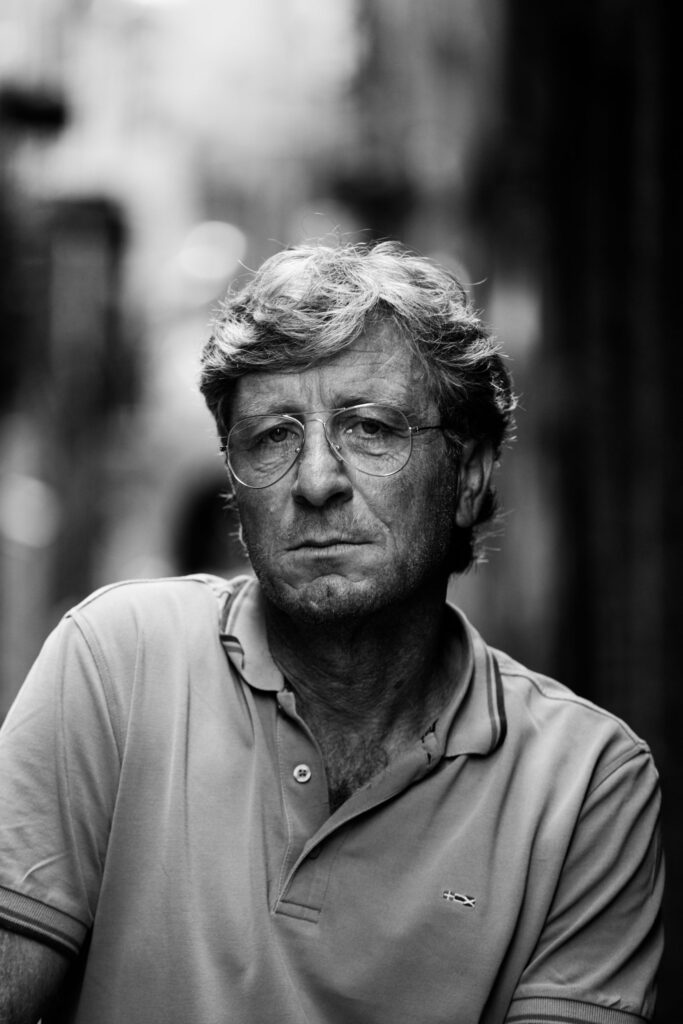I like to think that everything we need to know about life comes from easy and true grounds, like Caronte’s eyes.
Caronte walks down the streets of Naples, sure of himself. He knows them very well, but he never ceases to be amazed. He stops in front of the smallest details to rediscover them, like the sight of fresh basil growing on a terrace. Last night, when we met, he never got tired of savouring such a well-known smell. While we walk around the alleys, various graffiti fascinate him. “I’m so glad” he tells me ” being here, being on these streets, chatting about life, makes me full of emotion.”

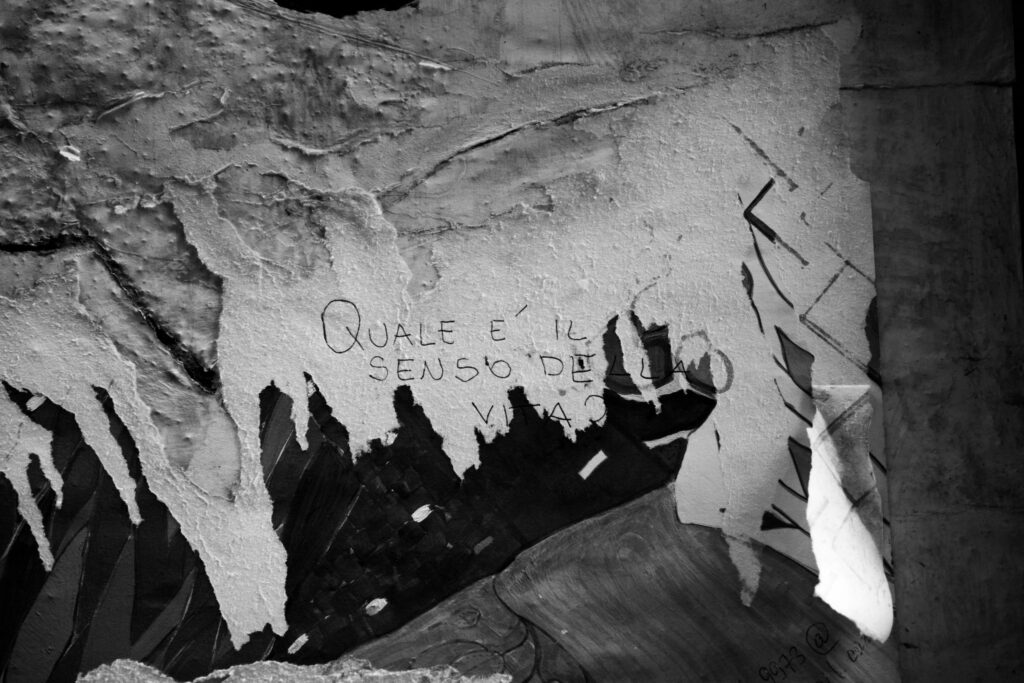
He has light blue eyes, which are a clear and sharp color combined with a laid back nature. Just like his paintings. A few shades of colour to describe how he is feeling, like the happiness he felt when he was a kid walking ten kilometers down the road to reach his grandmother’s house. His works represent the art of being surprised in front of life, that according to Caronte is best translated by the Neapolitan expression “Ua!“
Although he comes from a village near Matera, Italy, he uses with ease and a certain level of confidence, some idioms from our dialect: “It’s that I feel innately Neapolitan because Naples is a city of love and I feed on emotions.” We delve into this concept. He explains to me that his survival depends on emotions. Sometimes it’s a song on the radio, maybe a song which you have always known existed but surprisingly you discover some new words you have never paid attention to, that changes your day. Other times it’s just something simple like watching television. For Caronte, who grew up with just the radio, anytime he watches a tv programme, it’s such a enriching experience on many levels. Most often it’s just chatting with someone that leaves him feeling so rich. “I strongly believe that feeling different types of emotions is important to recognize the value of things. Everything goes, but nothing should go unobserved”.
Like the watches in the shop front window, in front of which he stops spellbound. Owning a watch during his childhood was a luxury and today he never ceases to pay homage to any window of a watch shop that comes his way by observing it for a few minutes.
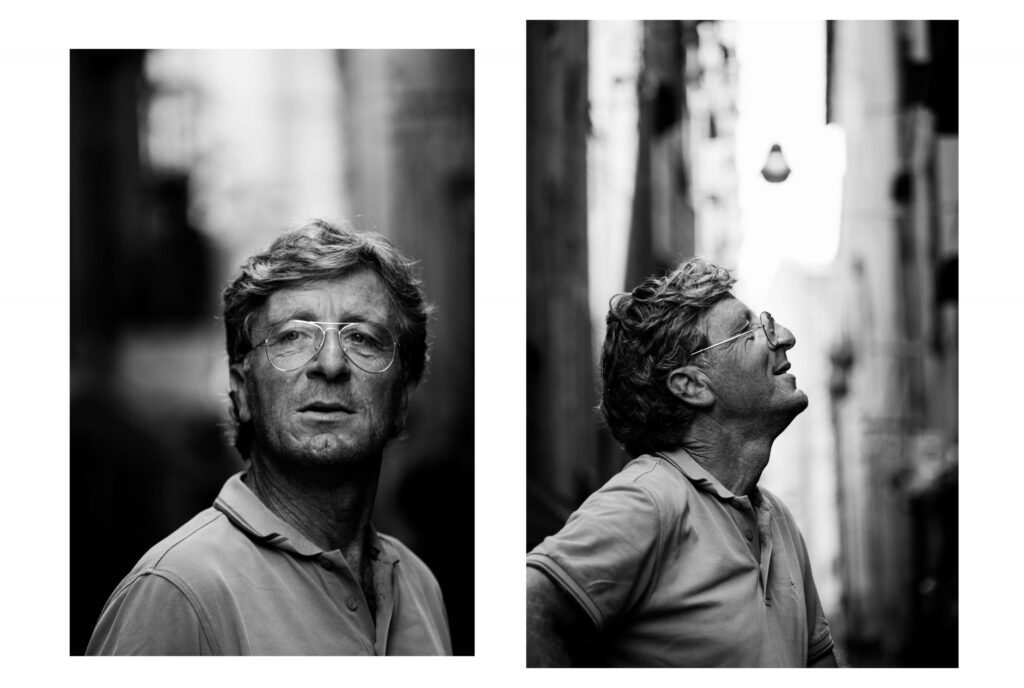
We continue walking through the colorful streets, “Order is for modest people”, he tells me. Maybe because chaos tells us more about life, I suppose. Maybe because the smartest people are the ones that adapt to disorder, to everything that cannot be organized or fixed. Who knows. Caronte thinks that smartness goes together with sensitivity, that it consists of interpersonal skills, or better known as empathy, that distinguishes humans from animals and that Neapolitan people are masters of that. “You are people with a rare behavioral elegance.” When I probe him, he adds: “You are never indifferent, you give weight to pain, you give importance to others.”
The first time he came to Naples, was in the 1988, since then he has come back every two or three months or whenever he feels nostalgic. He defines himself as more than a fan, someone who truly empathizes with the city. He tells me about an episode he experienced some years ago. He was in Mergellina, with a severe toothache, after a few minutes he was surrounded by a group of people that tried to help him without having any expertise in the matter. “Just speaking about things makes you feel better. We are relational beings” he comments with conviction.
Over time he has pushed his friends and acquaintances to visit Naples. Once he “prescribed” (he uses this exact term) an entire month’s stay in the city. The “patient” was in fact a friend of his with a broken heart. When he came back he confessed to have had spoken with more people than he had met in his entire life. Openness amongst people makes Naples the capital of humanity, according to Caronte. A city which you cannot easily categorize, that dances freely amongst chaos, a place that escapes definitions, and the banality of clichés and prejudices. “Racism is for fools, it should be pitied. Prejudices come from wickedness.” he comments.
Maybe racism should be compared to order, the more mayhem you have in a city, the more people learn to live in harmony with one another. Maybe, you should be used to living in a city where going from one neighborhood to another you experience the same deep sense of belonging.
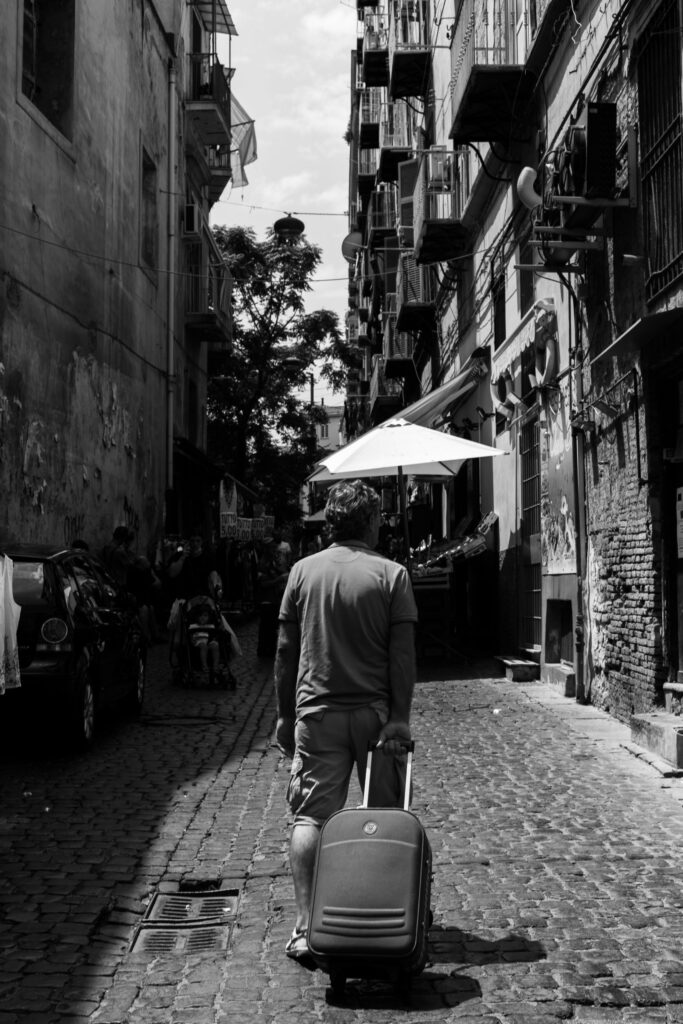
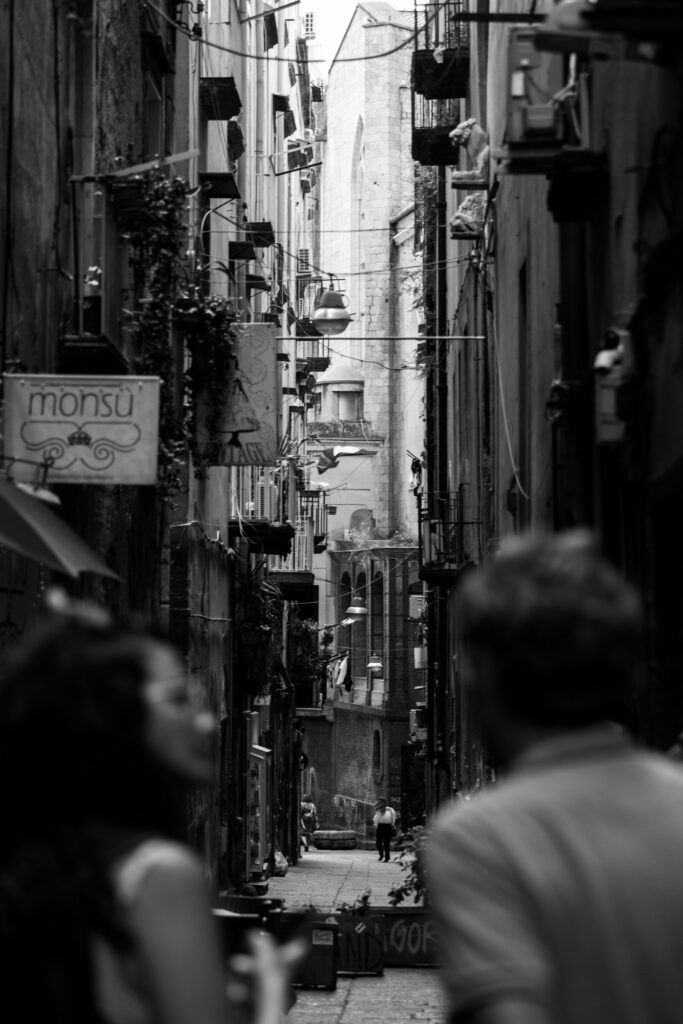
While we are moving through the Sanità district he shows me a religious icon on the door of a typical apartment in Naples, called “basso”: “Look this is San Michele! My grandma would always say “Michè, you need to be protected because you have got the devil inside!” The devil is his sensitivity, a kind of damnation that makes him suffer a little too much. Sensitivity has made him slow down his life. Being empathetic allows him to feel the pain of others.
“If I were indifferent to a homeless man, what would I have understood of my existence?” He asks me, but it’s a rethorical question, he knows I strongly agree. It’s unsettling how many complex concepts he is able to explain in such an easy way. Everything is related to his sensitivity, also his nickname “Caronte”.
Once he was at a village party near Matera, it was full of intoxicated people. Caronte decided to take them home, one by one, from Basilicata to Campania. Sensitivity makes you slow down that’s for sure. You often think of others, before yourself.
Caronte has moved slowly through life, taking in everything he has come across. At times he has been afraid of stroking a dog so as not to instantly feel fond of it. Since his youth he has always taken love seriously: “Who doesn’t know how to love, who mocks other people and themselves, are silly.” I find his definitions of intelligence absolutely inspiring. They seem to be related to the idea that the maximum ambition for human beings in society and for themselves, personally, could be to stop and understand what’s happening around them, taking it slowly and living, instead of just existing.
I think about Naples; its disorder, a slow, underdeveloped city. Naples often leaves us feeling hopeless, but I wonder if all this disorder doesn’t actually makes us safe.
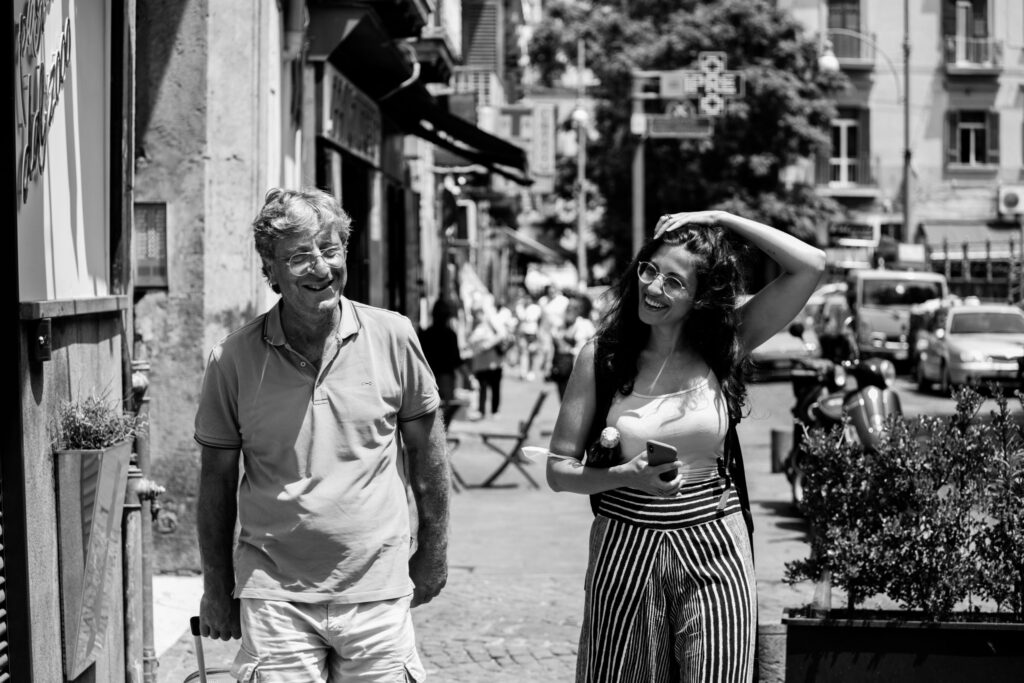
Caronte and I continue walking down the fascinating streets of this area and marvelling at the buildings around us. Before he takes the bus that will take him back to Matera, he wants to eat a pizza and he talks to me, in a confidential way, about love. He tells me that olive trees pollinate by themselves, at distance. It’s a metaphor to say that true love exists. I ask him what love means to him. He answers that love consists of giving the best version of yourself without asking for anything in return; it’s finding the courage to accommodate your loved ones weaknesses. I collect all these precious truths and I carry them with me. I believe that love is a form of art that you can learn from the best masters. Before saying goodbye he tells me that the world should go back to get emotional and he quotes Rino Gaetano “E’ la mia battaglia e io la vincerò!”
Before leaving he finally says: ” Do you know what, Lea? Most of people could say that this long chatting is a lost of time, but I don’t care. I understood that these are people from what I need to be far, same people that read an issue in my way of being. How can I explain to who see me frowning that I’m just getting emotional? I got it at fourteen: life is a serious thing, I don’t want to loose neither a minute.
